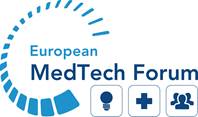A CUTE and simple teddy bear leg bag could revolutionise care for small babies and children, their parents and carers when urinary catheters need to be fitted due to surgery or health problems.
The child-friendly bags, developed by the National Institute for Health Research’s (NIHR) Devices for Dignity Healthcare Technology Co- operative offer a far less unpleasant experience for young children and are imprinted with Mummy and Baby bear images.
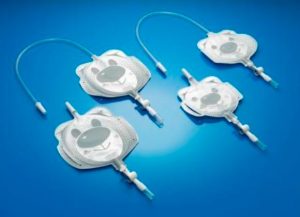
They come in two small sizes (150ml and 250ml) and are much more comfortable and lighter for small children than typical adult sized bags (350ml to 1,000ml) – which often do not fit correctly around a child’s leg and can be uncomfortable as well as dragging on the catheter. This could cause discomfort if not anchored correctly. The bags are now being made available by Great Bear Healthcare Limited to healthcare organisations thanks to NIHR Devices for Dignity Healthcare Technology Co-operative, a flagship initiative set up by the Department of Health to develop new medical devices and technologies that improve treatment and quality of life for patients.
Shaped like a cuddly teddy bear, the newly designed bags come with accessorised fun, paw-printed straps, and aims to reduce the unpleasant experience young patients, their parents and carers often endure when necessary urinary catheters have to be fitted when young children are unable to control their bladder properly due to a health problem or after surgery.
The leg bags are usually worn by the child on a leg, and enable them to move around freely. They can also be worn all day long and offer an aesthetically pleasing alternative to conventional, medical-looking leg bags which are attached to a child’s legs when a catheter is placed in the bladder.
Incorporating a soft, smooth fabric backing which feels comfortable against the skin and allows the skin to breathe, both versions of the teddy leg bags can also be linked to a larger capacity “night bag”, which are used overnight and placed by the child’s bedside when in hospital or at home.
The product has been manufactured by Great Bear Healthcare Limited, who have over 100 years’ experience of designing and manufacturing products and accessories helping make life more comfortable for people with bladder problems.
The mummy and baby bear leg bags are designed to be used by newborns and young children.
Nicola Heron, programme director for the NIHR Devices for Dignity Healthcare Technology Co-operative, said: “Coming into hospital when you are a very young child can often be a very emotional and stressful time, both for the child and their parents or carers. Wearing a leg bag can be an uncomfortable and unpleasant experience, so we’re delighted that this fun, new look bag with a number of unique design features has been launched that will appeal to the young audience.
“The new bags look and feel a lot less medical, and one child who used to hide her bag behind her back because she was so ashamed of it says she wears it like a handbag because she’s so proud of it.”
Pippa Bowkett, marketing director for Great Bear Healthcare Limited, who was heavily involved in the development of the product, added: “There is always a stigma to wearing any bodily worn appliance and, for the very young, it is sometimes hard to accept that these types of appliances will be with them for the short and/or long term. Great Bear is passionate about improving the quality of life for those who use urinary drainage bags and we saw an opportunity for a niche product that could really make such an experience easier for both the child and their respective parents/guardians. We are delighted to bring this product to market with the help of the NIHR Devices for Dignity HTC.”
For further information visit http://www.greatbearhealthcare.co.uk/our-products/mummy- baby-bear-leg-bag
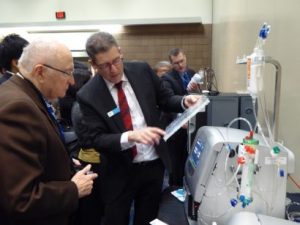


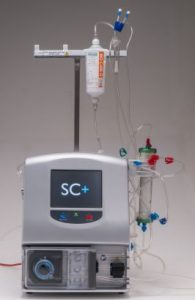

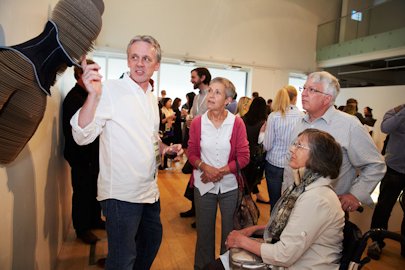
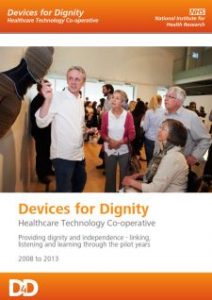 Click here to download your copy
Click here to download your copy